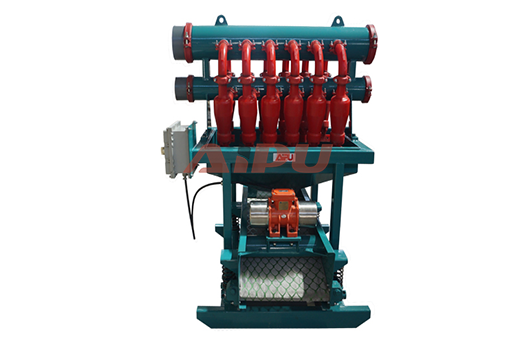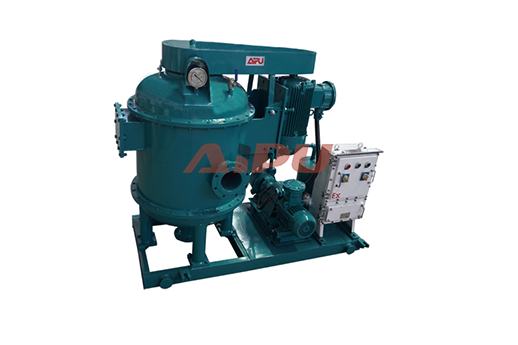How These Systems Are Changing Drilling Operations
In the complex world of oilfield drilling, solids control systems play a pivotal role that is often underestimated. These systems are like the unsung heroes, quietly working behind the scenes to ensure the efficiency and success of the drilling operations. Let's delve into the magic of solids control systems in oilfield drilling.
What are Solids Control Systems?
Solids control systems are a set of equipment and processes designed to separate the drilled solids from the drilling fluid, also known as mud. The drilling fluid serves multiple purposes, such as cooling the drill bit, carrying the cuttings to the surface, and maintaining wellbore stability. However, as the drilling progresses, the fluid becomes contaminated with various sizes of solids. Solids control systems use a series of devices, including shale shakers, desanders, desilters, and centrifuges, to remove these unwanted solids. This helps to keep the drilling fluid in optimal condition for continued use.
The Importance of Solids Control
The significance of solids control cannot be overstated. Firstly, it extends the lifespan of the drilling equipment. By removing abrasive solids from the drilling fluid, the wear and tear on the drill bit, pumps, and other components are significantly reduced. This leads to lower maintenance costs and less downtime for equipment repairs. Secondly, proper solids control improves the quality of the drilling fluid. A clean and well - maintained drilling fluid ensures better hole cleaning, which is crucial for preventing issues like stuck pipe and lost circulation. Moreover, it enhances the overall drilling efficiency, allowing for faster penetration rates and more accurate wellbore construction.
How Solids Control Systems Work
The operation of solids control systems is a multi - step process. It begins with the shale shaker, which is the first line of defense. The shale shaker uses vibrating screens to separate the larger cuttings from the drilling fluid. The fluid then flows to the desander and desilter units, which use hydrocyclones to remove medium and fine - sized solids respectively. Finally, the centrifuge is used to separate the ultra - fine solids from the fluid. This step - by - step approach ensures that the drilling fluid is thoroughly cleaned and can be reused in the drilling process.
Innovation in Solids Control
The field of solids control is constantly evolving. New technologies are being developed to improve the efficiency and effectiveness of these systems. For example, advanced shale shaker designs with better screen materials and vibration mechanisms can achieve higher separation rates. Additionally, automated control systems are being integrated into solids control equipment, allowing for real - time monitoring and adjustment of the separation process. These innovations not only enhance the performance of solids control systems but also contribute to a more sustainable and environmentally friendly oilfield drilling industry.
In conclusion, solids control systems are truly magical in the context of oilfield drilling. They are essential for maintaining the health of the drilling equipment, improving the quality of the drilling fluid, and driving the efficiency of the entire drilling process. With continuous innovation, these systems will continue to play a crucial role in the future of oilfield exploration and production.

What are Solids Control Systems?
Solids control systems are a set of equipment and processes designed to separate the drilled solids from the drilling fluid, also known as mud. The drilling fluid serves multiple purposes, such as cooling the drill bit, carrying the cuttings to the surface, and maintaining wellbore stability. However, as the drilling progresses, the fluid becomes contaminated with various sizes of solids. Solids control systems use a series of devices, including shale shakers, desanders, desilters, and centrifuges, to remove these unwanted solids. This helps to keep the drilling fluid in optimal condition for continued use.
The Importance of Solids Control
The significance of solids control cannot be overstated. Firstly, it extends the lifespan of the drilling equipment. By removing abrasive solids from the drilling fluid, the wear and tear on the drill bit, pumps, and other components are significantly reduced. This leads to lower maintenance costs and less downtime for equipment repairs. Secondly, proper solids control improves the quality of the drilling fluid. A clean and well - maintained drilling fluid ensures better hole cleaning, which is crucial for preventing issues like stuck pipe and lost circulation. Moreover, it enhances the overall drilling efficiency, allowing for faster penetration rates and more accurate wellbore construction.
How Solids Control Systems Work
The operation of solids control systems is a multi - step process. It begins with the shale shaker, which is the first line of defense. The shale shaker uses vibrating screens to separate the larger cuttings from the drilling fluid. The fluid then flows to the desander and desilter units, which use hydrocyclones to remove medium and fine - sized solids respectively. Finally, the centrifuge is used to separate the ultra - fine solids from the fluid. This step - by - step approach ensures that the drilling fluid is thoroughly cleaned and can be reused in the drilling process.
Innovation in Solids Control
The field of solids control is constantly evolving. New technologies are being developed to improve the efficiency and effectiveness of these systems. For example, advanced shale shaker designs with better screen materials and vibration mechanisms can achieve higher separation rates. Additionally, automated control systems are being integrated into solids control equipment, allowing for real - time monitoring and adjustment of the separation process. These innovations not only enhance the performance of solids control systems but also contribute to a more sustainable and environmentally friendly oilfield drilling industry.
In conclusion, solids control systems are truly magical in the context of oilfield drilling. They are essential for maintaining the health of the drilling equipment, improving the quality of the drilling fluid, and driving the efficiency of the entire drilling process. With continuous innovation, these systems will continue to play a crucial role in the future of oilfield exploration and production.








